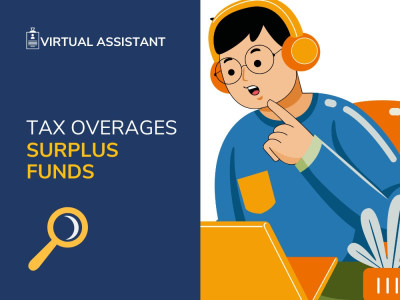All Categories
Featured
Table of Contents
Our surplus funds recovery attorneys have assisted homeowner recuperate millions of dollars in tax obligation sale overages. Many of those house owners didn't even know what overages were or that they were even owed any kind of excess funds at all. When a house owner is incapable to pay real estate tax on their home, they may lose their home in what is recognized as a tax obligation sale auction or a constable's sale.
At a tax sale public auction, buildings are offered to the highest possible bidder, however, sometimes, a building might cost greater than what was owed to the region, which leads to what are called surplus funds or tax sale excess. Tax obligation sale overages are the additional money left over when a foreclosed residential or commercial property is cost a tax obligation sale public auction for more than the amount of back tax obligations owed on the building.
If the property costs greater than the opening proposal, then overages will be generated. What the majority of home owners do not know is that many states do not enable counties to maintain this extra money for themselves. Some state laws dictate that excess funds can just be asserted by a couple of celebrations - consisting of the individual that owed tax obligations on the residential or commercial property at the time of the sale.
If the previous residential property owner owes $1,000.00 in back taxes, and the residential property offers for $100,000.00 at auction, after that the legislation states that the previous homeowner is owed the distinction of $99,000.00. The region does not get to keep unclaimed tax excess unless the funds are still not declared after 5 years.
Leading Unclaimed Tax Sale Overages Blueprint Overages List By County
However, the notice will generally be mailed to the address of the residential or commercial property that was marketed, but because the previous building owner no longer lives at that address, they typically do not receive this notice unless their mail was being sent. If you remain in this scenario, don't let the government maintain money that you are entitled to.

Every so often, I hear talk about a "secret new chance" in the company of (a.k.a, "excess profits," "overbids," "tax obligation sale excess," etc). If you're totally not familiar with this concept, I want to offer you a fast review of what's taking place below. When a residential or commercial property proprietor stops paying their real estate tax, the regional district (i.e., the county) will certainly wait on a time prior to they confiscate the home in repossession and market it at their annual tax obligation sale public auction.
The details in this article can be affected by numerous one-of-a-kind variables. Expect you own a building worth $100,000.
Property Tax Overages Real Estate Overages

At the time of repossession, you owe ready to the region. A couple of months later, the county brings this property to their annual tax obligation sale. Below, they market your home (in addition to lots of various other delinquent buildings) to the greatest bidderall to redeem their shed tax income on each parcel.
Many of the investors bidding on your residential property are fully aware of this, as well. In many cases, residential properties like your own will certainly get bids Much beyond the quantity of back tax obligations in fact owed.
Get this: the region just required $18,000 out of this residential property. The margin between the $18,000 they needed and the $40,000 they got is referred to as "excess earnings" (i.e., "tax obligation sales excess," "overbid," "excess," and so on). Many states have statutes that forbid the county from maintaining the excess repayment for these buildings.
The county has rules in area where these excess earnings can be declared by their rightful owner, generally for a designated period (which varies from one state to another). And who specifically is the "rightful proprietor" of this cash? It's YOU. That's appropriate! If you shed your residential or commercial property to tax obligation foreclosure due to the fact that you owed taxesand if that property ultimately sold at the tax sale auction for over this amountyou might feasibly go and gather the difference.
Top Tax Overages Business Opportunities Training Tax And Mortgage Overages
This consists of proving you were the prior proprietor, finishing some documents, and waiting on the funds to be supplied. For the typical person that paid full market worth for their property, this approach does not make much feeling. If you have a significant quantity of money invested right into a residential or commercial property, there's way too a lot on the line to just "let it go" on the off-chance that you can milk some extra squander of it.
With the investing technique I utilize, I can buy properties complimentary and clear for pennies on the dollar. When you can purchase a property for a ridiculously low-cost cost AND you know it's worth significantly more than you paid for it, it may really well make sense for you to "roll the dice" and try to accumulate the excess proceeds that the tax foreclosure and public auction procedure create.
Reliable Real Estate Overages Education Tax Sale Overage Recovery
While it can absolutely pan out similar to the method I've explained it above, there are additionally a couple of drawbacks to the excess profits approach you actually should certainly understand. Tax Deed Overages. While it depends substantially on the features of the property, it is (and sometimes, likely) that there will be no excess proceeds created at the tax sale auction
Or perhaps the region does not produce much public rate of interest in their auctions. In either case, if you're purchasing a home with the of letting it go to tax repossession so you can accumulate your excess profits, what if that cash never ever comes via? Would certainly it be worth the time and cash you will have wasted once you reach this conclusion? If you're anticipating the county to "do all the job" for you, then presume what, In most cases, their schedule will actually take years to turn out.
The very first time I pursued this method in my home state, I was informed that I really did not have the option of claiming the excess funds that were generated from the sale of my propertybecause my state didn't enable it (Tax Overages List). In states such as this, when they produce a tax sale overage at a public auction, They simply maintain it! If you're thinking of utilizing this technique in your company, you'll desire to assume long and tough regarding where you're working and whether their regulations and statutes will certainly also allow you to do it
All-In-One Tax Overages System Foreclosure Overages List
I did my finest to provide the correct answer for each state over, however I would certainly advise that you before waging the presumption that I'm 100% correct. Bear in mind, I am not an attorney or a certified public accountant and I am not trying to hand out specialist lawful or tax suggestions. Speak to your attorney or CPA before you act on this details.
Latest Posts
Sales Overage
Best Books On Tax Lien Investing
Back Taxes Property